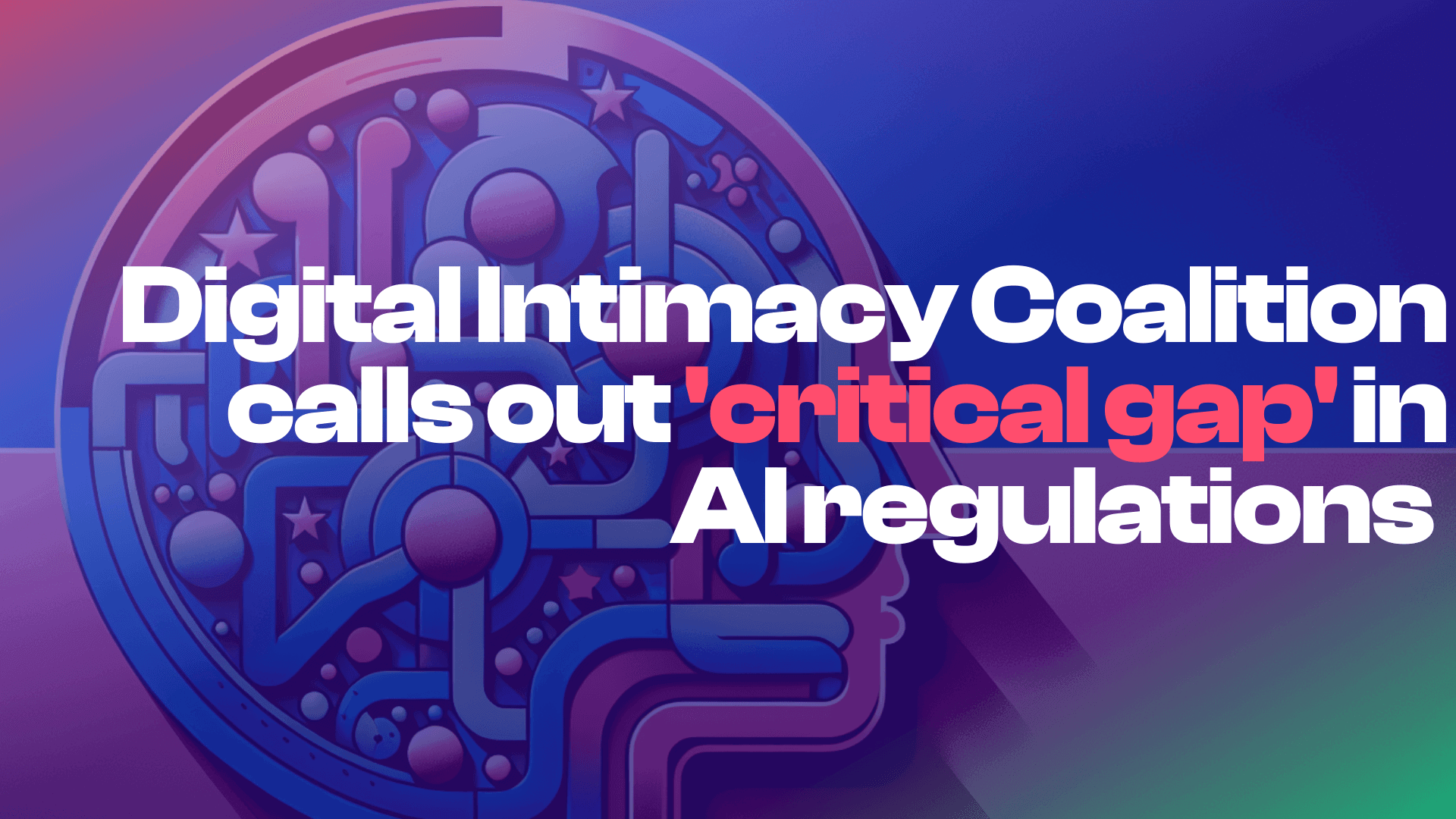Trigger Warning: Discussions of sexual assault and rape.
When we think about sexual trauma, tech may not naturally come to mind for many of us. There are plenty of existing negative connotations between the two concepts. For example:
- our rampant use of technology— especially smart phones— has been shown to reduce our libido;
- mainstream porn has been found to harm sexual attitudes as well as increase sexual objectification;
- and slut shaming and digital-based sexual violence is prevalent across the online world.
So, while tech might not initially seem a natural bedfellow for sexual healing, pioneers of sex tech and the sex-positive movement are looking to change that for the better.
A universal problem
For much of my life I’ve considered myself a pretty open person sexually. It was a huge part of who I was and how I related with myself and the world. But then that changed. After I was raped and the memory re-surfaced, I felt an intense distancing from myself in this regard. The trauma of it was far too much. Gone was the ease with which I would have ever engaged with others sexually, or indeed with myself. I could not bear to be touched. So I didn’t allow that. Either from others or myself.
However, untouched, I started to disappear. And I am- of course- far from alone in this experience. I began to look to the sex tech industry as another means of beginning to reclaim that side of myself, to re-appear.
Sexual trauma is all too common a reality for many people. In fact, it’s estimated that 1 in 4 women and 1 in 20 men in the UK will experience rape or sexual violence at any point in their lives, not to mention that almost half of all transgender people have been sexually assaulted at some point in their lives. It is a universal problem, but shame, embarrassment, and taboo often stop survivors speaking about it.
Sex is undoubtedly a huge part of who we are but many of us are denied this following events that may result in trauma. Reclaiming our sexuality is an important process of healing. But how do we go about that? And how can sex tech be a useful resource for bringing harmony and pleasure back?
Types of trauma
There are a number of different types of sexual trauma. Overt sexual trauma is a result of rape or assault. Whereas covert sexual trauma can result from more insidious methods of sexual abuse (as opposed to outright sexual violence). Examples include things such as slut shaming, exposure to unwanted sexually explicit content, or verbal abuse. But all of these types of sexual trauma can result in trauma responses, both physically and mentally.
Sexual trauma can manifest in a number of different ways and every individual is different. It increases the prevalence of depression or anxiety and PTSD. In fact 94 percent of survivors of sexual assault and abuse go on to develop PTSD. It can continue for years, sometimes not even manifesting until years after an event.
Responses to sexual trauma and manifestations of PTSD vary hugely, but all can result in physical, psychological and emotional difficulties. Some symptoms can include hyper-arousal or hyper-vigilance (meaning your body is a constant fear response).
Other physical symptoms can also include difficulty sleeping, headaches and stomach problems. Psychological symptoms of sexual trauma can include difficulty concentrating, self harm or substance abuse. Emotionally, those suffering may experience emotional numbing or disassociation, intrusive thoughts and flashbacks.
It can also give rise to a myriad of problems surrounding sexuality; such as decreased sexual satisfaction, negative impact on relationships, withdrawing from sex altogether or pain during sex.
“When we experience sexual assault, our bodies and the nervous system adapt as to how we react to threats,” says author, sex educator and psychotherapist in training, Gigi Engle.
She goes on to explain that “it manifests in ways such as anxiety during sex or panic attacks, it can also manifest physically, in all kinds of ways of sexual wellness, with things like vaginismus. You can hold this tension in your body, because your body and your brain perceive penetration as a threat. So that can cause a lot of problems. The way the pain cycle works is that your brain will register that sex is painful, which then makes you think that sex is painful which then perpetuates the response to pain. So then it becomes a cycle.”
Flashbacks are also another common and notable symptom of sexual trauma, which sex can then trigger. When trauma occurs—but has not yet been processed—it exists as a live trauma. So it still continues to impact your brain and body. The actions of sex, a partner’s behaviour, even some of the smells that occur during sex (such as sweat or semen), all of these can trigger a flashback response. Meaning that your brain and your body believe that something—such as the assault or abuse—is happening again in that moment.
Starting to overcome these traumas is a huge journey. And one that requires help and support from a number of different sources, such as therapy or other psychological support. Nothing we discuss from here is intended as a replacement for that support.
In recent years, the sex tech space has been expanding to bring its assistance to the issue, giving individuals a means of autonomy over their bodies, that is so sorely needed following assault and trauma.
Regaining sexual comfort and agency is a detrimental—but sometimes overlooked—aspect of recovery.
Sex toys (and masturbation) can be pivotal
It’s estimated that 91 percent of us masturbate. Yet, masturbation is so much more than just self-pleasure. It’s an act of reclamation. An act of being present with your body and its needs. It’s an act of reclaiming your body from sexual shame. It’s a love letter to your sexual being and yourself. Which means that it can be a powerful tool in recovering from sexual trauma.
The sextech industry has catered to this need in a number of ways. Many sextech companies have made great advances in creating sex toys that are more gender-neutral or less intimidating (overtly phallic toys can often be triggering to survivors of assault).
Companies such as Dame Products and Nienke Helder have ensured that they offer users a calmer experience which is more about their pleasure, more inclusive, and free of gender associations.
“Sex tech has done so much to really move away from the dildos of yesteryear, those massive purple things with huge veins,” Engle explains, “and to make really amazing toys in neutral colours that are really welcoming. They look like tools rather than aggressive sex toys. I think that aspect really centers the person using them and their pleasure, it makes them the star of that experience. It’s for your exploration. It’s more a reclamation of your body, which is taken from you after assault. And so you can rewire those pathways to stop your body reacting to sexual stimuli.”
Mindful masturbation is another trend that sex tech has helped to promote. Platforms such as Ferly and Kama focus on this practice. The mindset behind it is that masturbation is an art that demands presence, time, and focus. That encourages us to bring the same mindfulness, that we assign in many aspects of our life, into the bedroom solo too.
As a result, we’re able to experience new sensual experiences and learn more about ourselves sexually, as well as making sex not all about another person but focusing on the fact that it is something we have every right to enjoy alone. For survivors of sexual violence and sexual trauma, this attitude can help make sexuality a safe space again.
Online platforms lead the way
Other platforms are also bringing great ways to initiate our personal sexual healing. Beducated is among this cohort of sexual educators who are placing sexual wellness and identity front and centre, making it easier for survivors of trauma to reclaim their sex lives. The platform offers content and courses looking at a variety of sexual wellness topics, including sexual healing.
“When I started this work, I was suffering from low libido and I realised way later during the Me Too movement, that I had experienced a lot of sexual assault,” shares Beducated founder Mariah Freya. “Things like someone in the subway masturbating in front of me, or someone seducing me in a weird way. So when I started working with sexual healing for myself I discovered the work around massage and vaginal massage, it made me realise that there is a lot of trauma stored in my body. So it was one of the beginning phases of Beducated.”
The huge advantage that platforms such as Beducated—and indeed much of sex tech’s solutions to trauma—have is the ease and low threshold it presents users when it comes to regaining sexual agency and beginning sexual healing.
Using an app or educational site is a lot less scary than signing up for a workshop or committing to a series of therapy sessions. Sex tech creates a safe space that individuals can begin this journey from the comfort of their own home, building confident to potentially go on to use these other tools.
Freya agrees that “it has a low threshold. I can just start, it doesn’t require me to schedule. Easy access is so important.”
Tech can also provide significantly more detail or give us more time to consider what is important to us when considering a sexual wellness issue or idea. By looking at content online we are able to really take our time with it, or re-watch, or re-read as many times as we need. Whereas in a workshop we may only be able to go into as much depth as the workshop leader either has created time for.
It also helps to alleviate some of the shame that surrounds us talking about sex. While the conversation is certainly opening up, there still remains a great deal of taboo and shame around sex, and masturbation in particular. Thankfully, the distance that tech provides means that we are able to access content that is hugely beneficial without having to vocalize our thoughts and desires publicly.
“Sex is another pillar of development that it is perfectly okay to develop and learn more about like meditation, sports or nutrition,” says Mariah. “It will become more common for the mainstream to jump on this and feel empowered. So tech is helping people to start solo. Tech is definitely helping people to jump on it quickly, but working on the shame, each of us needs to tackle.”
Sextech is opening up a conversation that affects so many of us. The likelihood of experiencing sexual trauma in our lifetime is significant and few of us are immune to the shame and taboo that can come with talking about it or indeed our sexual wellness more broadly.
By beginning to access resources and information we can start to reclaim this side of ourselves, that is so pivotal to our well being and our identity.
Read Next: Consent 101: The ultimate guide to helping you understand sextech and consent // Privacy 101: How to keep your browsing and other online activity as private as possible






















Leave a Reply